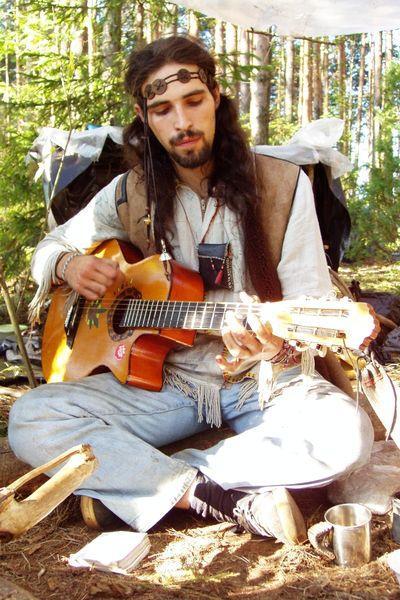Never solve a problem from its original perspective.
-Charles Thompson
The above quote goes a long way toward explaining why most of the ultimate I see looks horrible. There, I said it. And I'll keep saying because I'm the one who is playing most of the ultimate I see.
*pumps fist in admission of solipsism*
To be more clear and less pithy, most of the ultimate I see looks horrible in that it does not seem like a struggle between two teams with each directly contesting what the other is trying to do. It instead seems like a group of people amiably failing to do what they are supposed to. I'll give a couple concrete examples. The marker is on the disc forcing forehand, but rarely does he seem able to actually "hold the force" or contest the throw. That's okay, however, as the thrower isn't actually trying to take advantage of the markers incompetence. The thrower instead, 9 times out of 10, goes along with the marking defender's ineffectual force and throws a forehand. Which should leave the defense in an advantageous position because the markers are on the receivers 'forcing' toward the backhand side of the field, but rarely does the receiver feel forced in any direction and so the receiver is easily able to catch the disc on the forehand side.
The above scenario plays out countless times during games. Of course, certain markers actually hold the force and challenge throws, certain defenders take cuts away and challenge receivers, certain throwers look to expose holes in the marker or in the defense as a whole, and certain receivers cut so as to get away from their defenders and create space for others. The question is: why aren't all players doing these things at all times?
The answer, kudos again to Charles Thompson, comes from how most of us were taught to "solve the problem" of competition while playing ultimate. The ultimate we were taught was a friendly game that was about running around and having fun. It was more finger painting than football. It was laid back, chilled out, and had none of the ugliness of traditional competition. And we liked it. It was a nice place to learn. Nobody yelled if you made a mistake. For the most part, nobody even cared.

Chilly O, brah.
It was from this perspective that most of us learned the game. And because of this, even if we learned where to stand, where to cut, how to get open, how to throw, how to mark, how to defend a cut, etc. We did not learn why we did these things. The how without the why left a canyon-sized hole in our games.

Your best game is down there somewhere.
And then, there's the elephant in the room: competitive aggression. As in, you want to throw the disc, but I'm not going to let you by moving my feet making you work. Or, you want to make the easy down the line cut, but I'm going to stop you by putting my body in your way. There is an idea in ultimate that we should be nice at all times. This notion of niceness and playing cooperatively is thought of by most players as the highest virtue in ultimate: the Spirit of the Game. The fact that the Spirit of the Game (SOG) in no way encourages cooperative play doesn't seem to matter. Sadly, SOG gets used to justify lazy players and bad athletes. Real SOG boils down to 3 things for me:
1. Learn the rules
2. Don't break the rules
3. Respect the hell out of your opponent
Nowhere in my understanding of SOG is it suggested that playing your ass off on both sides of the disc is frowned upon. Yet, so few players (ie none) do it that seeing it is tantamount to spotting a black swan.

Plays his ass off both ways.
Everything seems scripted on the field because most players don't know why they are doing whatever it is they are doing. And, in the rare case that they do know why, their teammates don't know why and this negates the knowledgeable player's advantage. This only encourages a player who should (and does) know better to play lazily and creates bad habits for him.
What is the solution to this fog of uncertainty? For my team in the Spring, the solution will be having each player understand why he is doing whatever he is doing at any given time and why everyone else is doing what they are doing at a given time.
I am hopeful that the "whys" will fill this blog in the future.
i think the issue of people doing what they are "suppose" to do versus taking advantage of the situation becomes most apparent on zone offense when playing a zone defense. i've run into numerous cases where the captain/leader whatever you want to call it, tells the team that the zone offense will be played soley among the handlers. if the goal of the zone defense though is to keep the disc with the handlers, why would the offense want to do exactly what the defense is forcing them into. i think that there often is an inherent problem in communicating strategy; too many people talking about "what" the strategy is without talking about "why" we are doing it and "how" it is effective.
ReplyDeleteJing,
ReplyDeleteYou and I are and have always been on the same page when it comes to Zone Offense. It would seem like a very poor offensive strategy to do exactly what the defense is trying to make you do. And yet, 99% of teams teach their handlers to do just that in Zone Offense.
The other one that I love is: just pass it back and forth between the handlers to tire out the cup. Great! The cup may get tired, but there's nothing as invigorating as watching the offense turn the disc, which is what will always happen if you perpetually swing the disc.
The goal of Zone Offense is something I'm going to look at in later posts, but it seems clear from experience that the best opportunities come when the offense attacks the middle of the field and then bounces the disc outside for looks downfield as the cup scrambles to keep up.